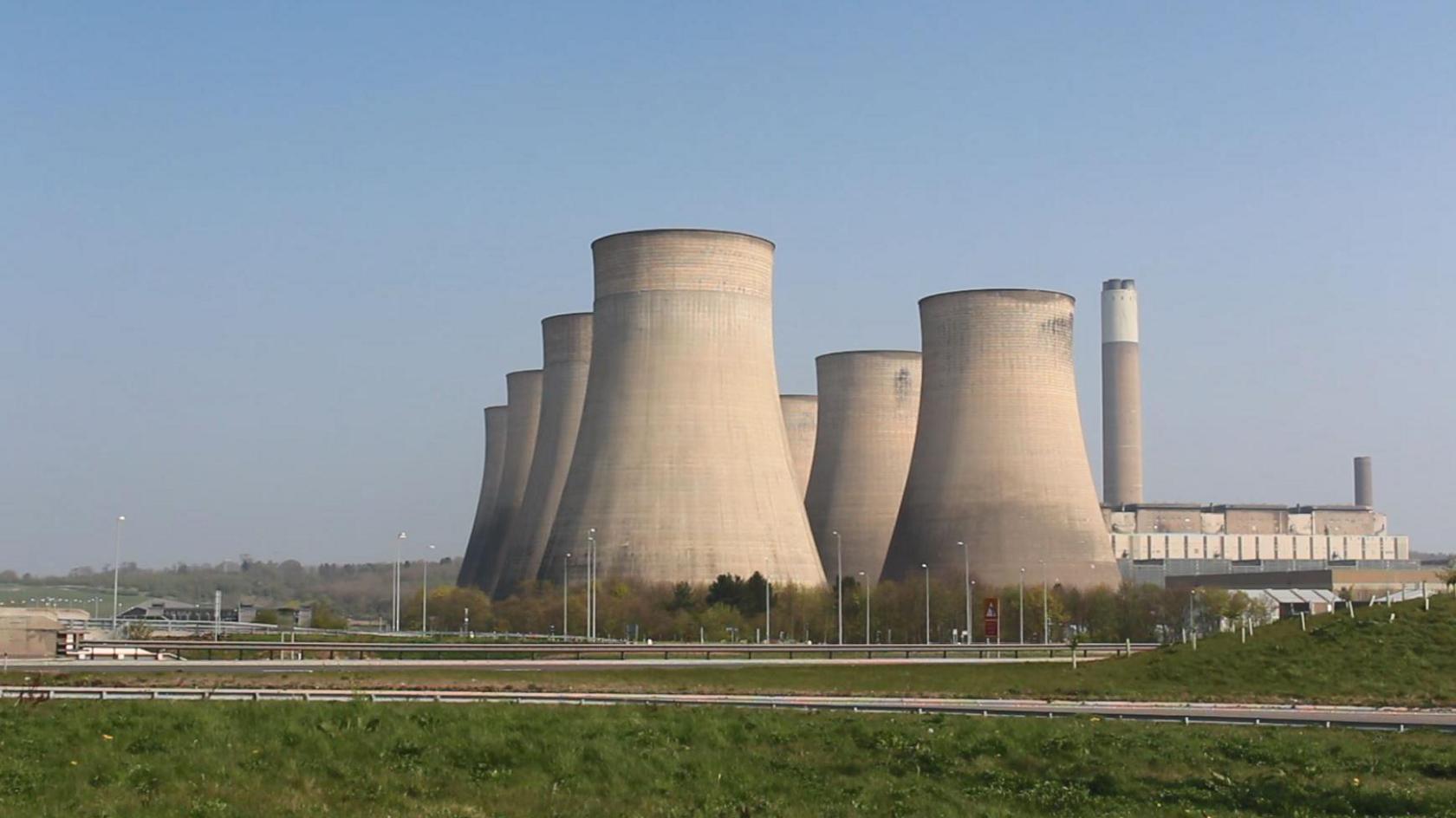Final fuel delivery marks end of the line for coal
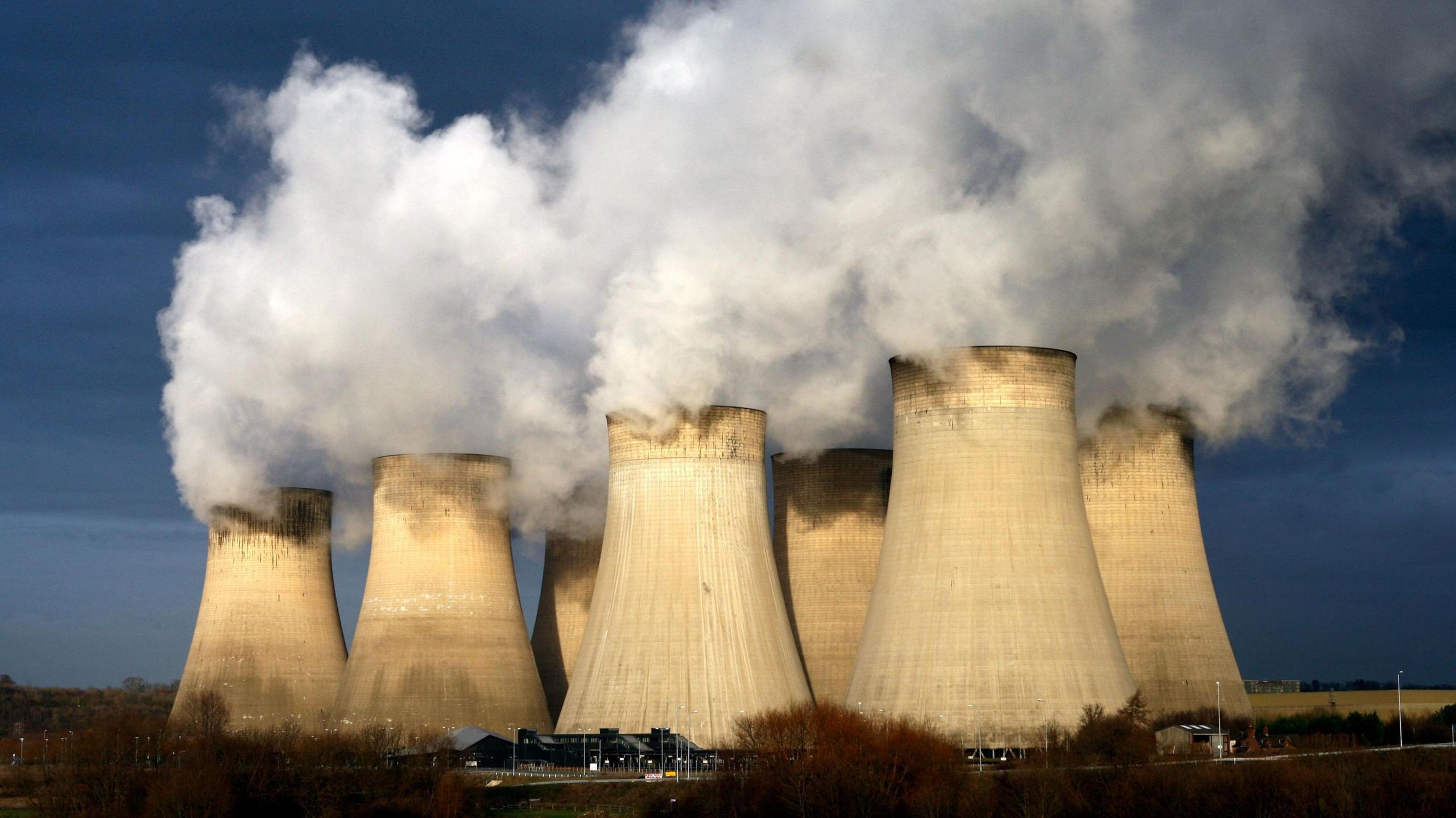
Ratcliffe-on-Soar Power Station has been a prominent landmark for more than half a century
- Published
The UK's last remaining coal-fired power station is entering its final days.
The plant at Ratcliffe-on Soar, Nottinghamshire, is a prominent landmark for rail passengers on the Midland Main Line and M1 traffic passing close by.
It began generating electricity 57 years ago - in 1967 - with a capacity of 2,000 megawatts, enough to power two million homes.
However, it will close on 30 September as part of government plans to end coal production in the UK.
The power station's final order of coal arrived by rail, marking the end of an era
The end for 'King Coal'
Coal once dominated the East Midlands region, with the Ratcliffe power station at its heart.
However, just as the coal mines have closed, now the UK's last coal-fired power station will cease production this autumn.
Coal is a fossil fuel and has been generating electricity in Britain since the Industrial Revolution, but it is now known for its impact on the environment.
When coal burns, it releases greenhouse gases, such as carbon dioxide, into the atmosphere.
Over time, the build-up of those gases has increased global temperatures, by trapping extra energy in the Earth's atmosphere.
The European Union ranked Ratcliffe as the continent's 18th most polluting power plant in 2008.
The UK has pledged to reduce its greenhouse gas emissions to net-zero by 2050.
To help achieve that target, the UK government has said it wants to achieve fully "clean" electricity by 2035, by rapidly increasing wind, solar, and nuclear power.
At the turn of the 20th Century, coal was used to generate over 95% of energy consumed in the UK. By 2023, that had fallen to just 1%.
What happened on the day of the last delivery of coal?
In a landmark moment, GB Railfreight delivered what is likely to be the plant's final coal shipment on Friday.
The 1,650-tonne delivery is enough coal to generate electricity for approximately 500,000 homes for an eight-hour period.
It is the last batch of more than six million tonnes of coal transported to the site from the Port of Immingham in Lincolnshire.
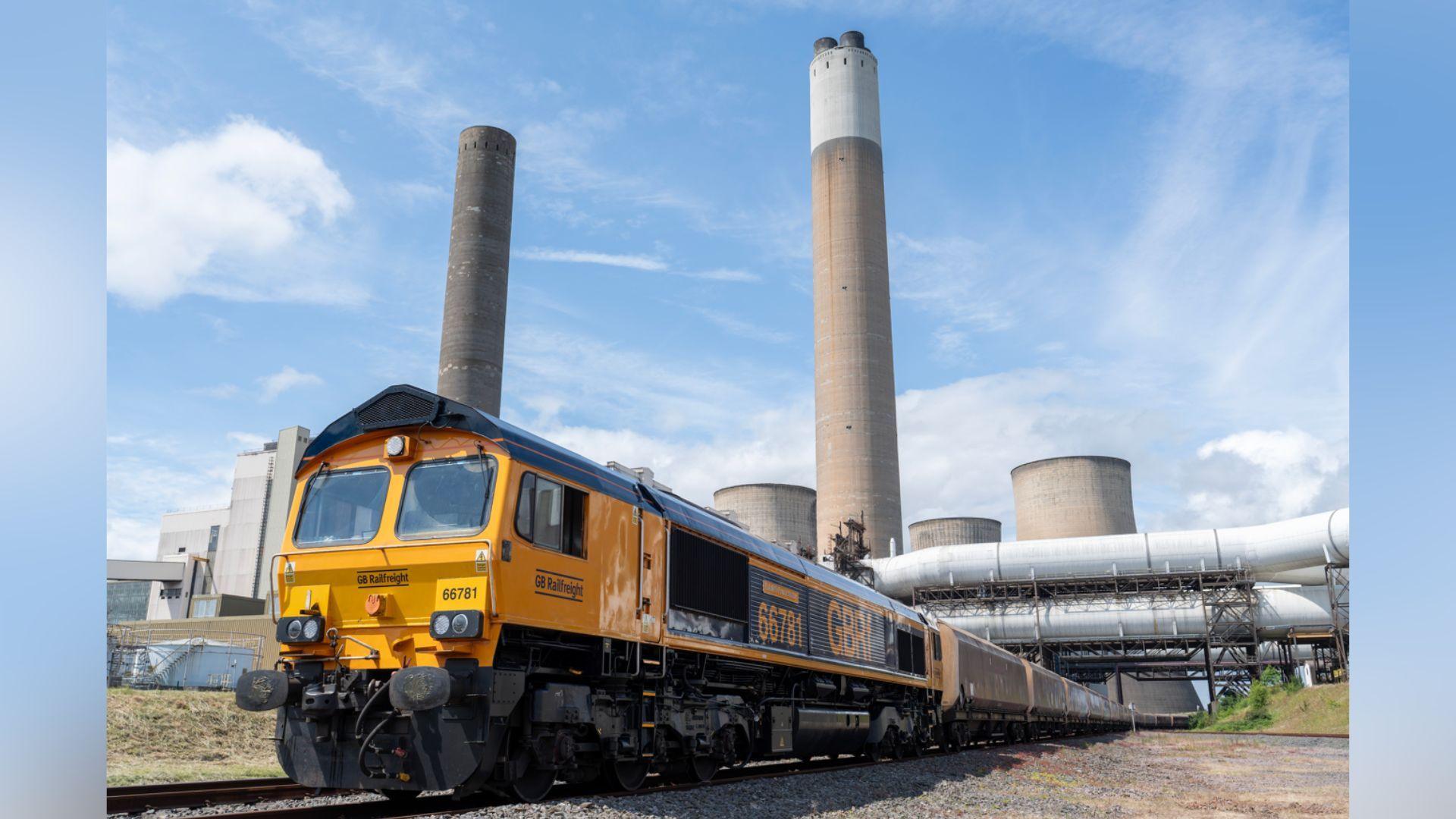
The newly-named locomotive, Ratcliffe Power Station, pulls alongside its namesake for the final time
To mark the end of the line, operator GB Railfreight named the locomotive Ratcliffe Power Station.
The company says each of its trains can carry the equivalent load of up to 129 lorries.
What will happen to the power station site?
The owner of the power station - international energy company Uniper - says it hopes the site could become a zero-carbon technology and energy hub.
The firm already has its Technology Centre at Ratcliffe-on-Soar, where it carries out research and development on power generation.
The site has a Local Development Order (LDO) in place, granted by Rushcliffe Borough Council in 2023.
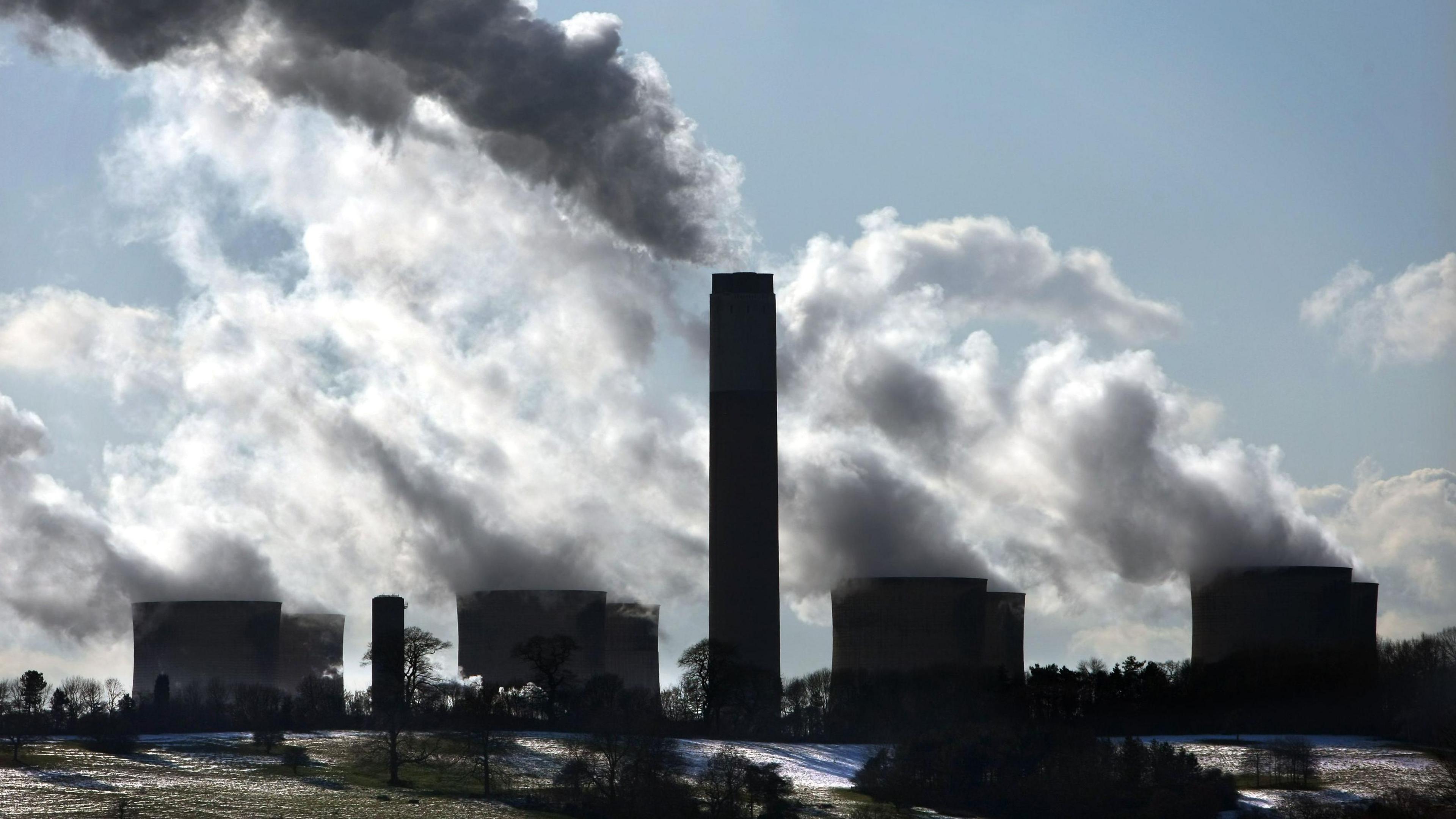
Smoke and steam can often be seen rising from the chimney and cooling towers
The council said its decision to simplify the planning permission process could fast-track development once the power station closes.
At the time, Neil Clarke, the Conservative leader of the council, said the LDO could help to create an estimated 7,000 jobs.
Mike Lockett, from Uniper, said: "We're also exploring the potential for future hydrogen production at the site."
How difficult is it to close down a power station?
Decommissioning at the Ratcliffe plant will start on 1 October, immediately after power production finishes, and take two years to complete.
Uniper says 125 of its staff will stay on to help close it down.
Demolition of the cooling towers and the rest of the 655-acre site will only happen once decommissioning is complete.
The council said it would limit the amount of development before road access improvements were made, to ensure local roads could cope with increased traffic.
Follow BBC Nottingham on Facebook, external, on X, external, or on Instagram, external. Send your story ideas to eastmidsnews@bbc.co.uk, external or via WhatsApp, external on 0808 100 2210.
Related topics
- Published29 April 2024
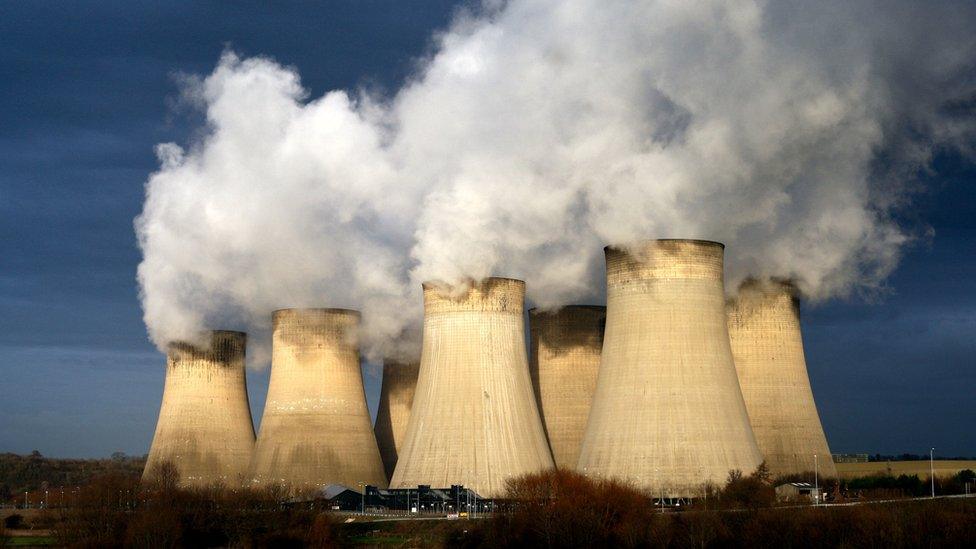
- Published14 July 2023
